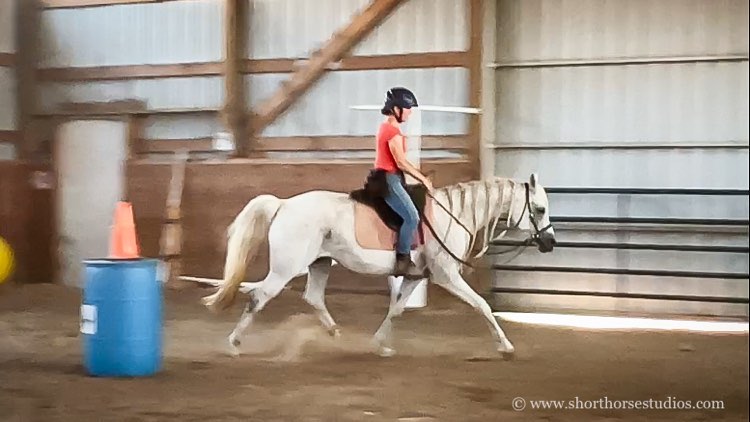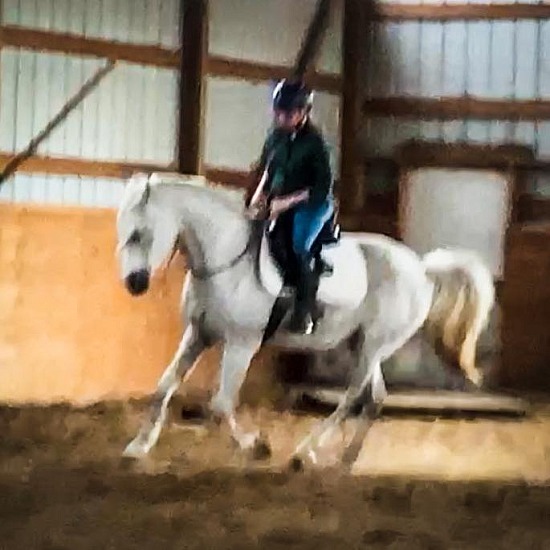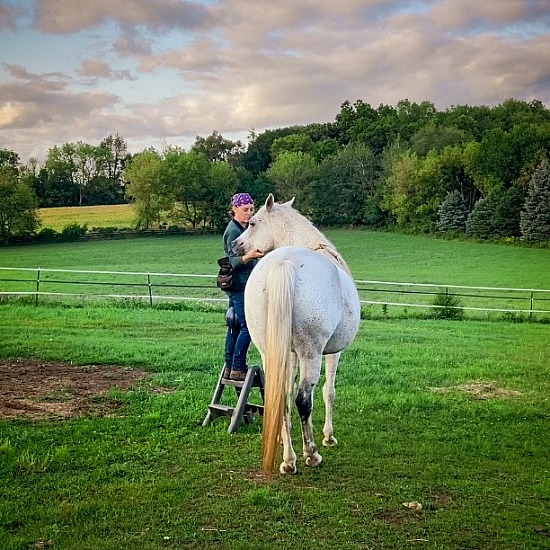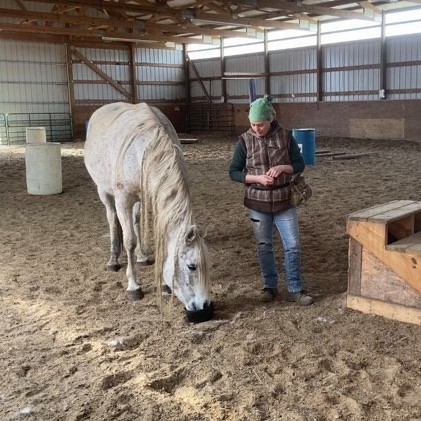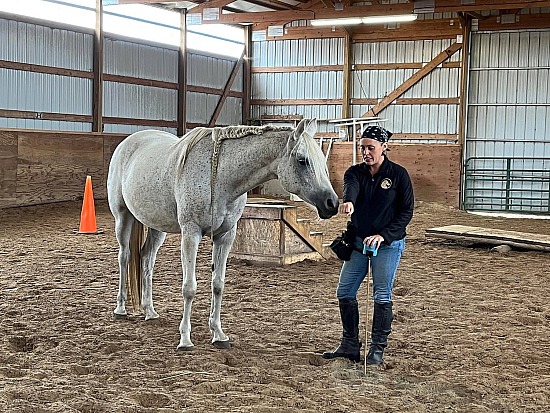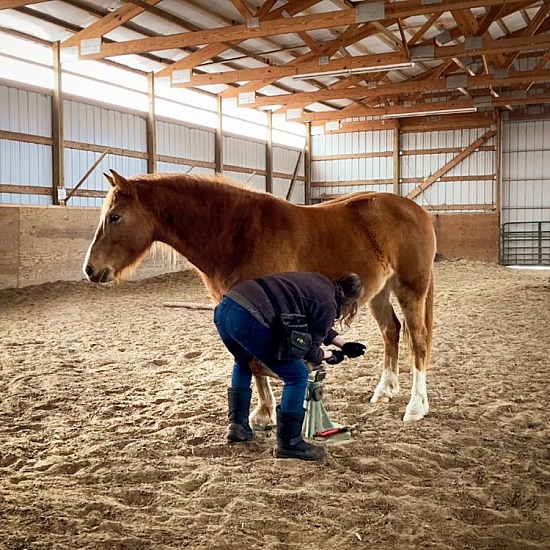Where do you want to go?
Are you looking to solve a particular problem? Or do you want to learn more about training theory and practice? You can't really do one without the other, but knowing what you want to focus on brings clarity to the approach to training.
Sessions are generally client-led. As often as possible, you are making decisions based on your goal and what you and your horse can handle. It's going to feel different because it's a departure from the more common "top-down" approach. It's meant to! I'm just the ideas person. I set the stage for exploration for both horse and person by creating a space with an intention, letting things unfold, and only making small adjustments here and there where I see how a change can make a positive difference. I am the guide, you are the explorer (and I promise it's not terrifying)!
groundwork
In nearly everything we do with horses, we either want them to stand still, or move. The first groundwork skill to teach the horse is to stand still and face forward. This skill also establishes a common language between horse and handler which is the foundation for all other training.
riding
To me, this means approaching a dressage mentality with a tendency to emphasize fluidity and adaptability over prescription. Also working outside using terrain and obstacles as natural variables for better movement capability and capacity.
husbandry
Consider husbandry training as preparing for an event, like a show, but with health care instead of riding or in-hand work.
rates
I can do the training, or I can coach you through it. No matter what you choose, consistency is key. Take into consideration your goal, any time sensitivity or deadline, the amount of time and effort you want to put in yourself, your budget, and how safe you feel with your horse.
positive reinforcement mini-workshop
This workshop is designed to teach horses and people how to get started with R+ (positive reinforcement) from the very beginning, as well as the possible next steps for using those skills in the real world. It’s for both horses and people who are completely new to R+ and open to learning a different way to look at training, or for people who have tried it, but weren't successful and their horses tried to eat them instead.
intermediate skills mini-workshop
This workshop is designed to follow on from the positive reinforcement mini-workshop, and takes the basic skills to the next level.
foot handling mini-workshop
After working with several horses and people for foot handling, I've created a hoofcare shaping plan to help guide us in the process. This workshop, designed to follow on from the intermediate skills mini-workshop, will loosely follow this plan, but with ample room to adjust for individual horses and people. You will also learn the basics of creating a shaping plan for training any behavior, and why you would do so. You will learn about: the mechanics of combining basic skills to teach foot lifting, the shaping concept of reversibility, building duration, introducing the hoof stand, introducing tools and tactile sensations, and staying well under the horse's emotional and physical threshold to minimize stress and maximize cooperation.

Loading more pages
